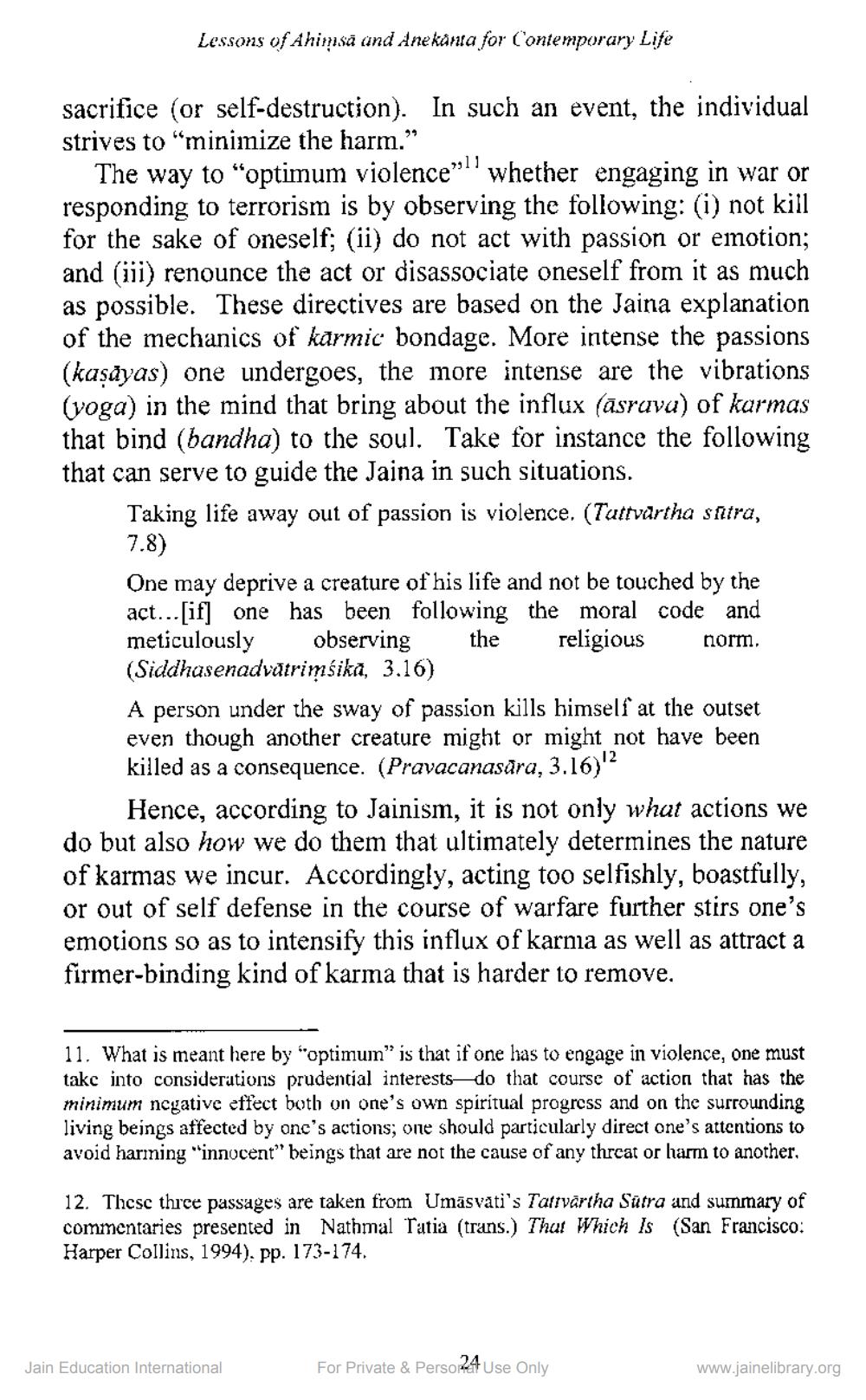Book Title: Jaina Response to Terrorism Author(s): Kim Scoog Publisher: Z_Lessons_of_Ahimsa_and_Anekanta_for_Contemporary_Life_014006.pdf View full book textPage 7
________________ Lessons of Ahimsa and Anekânta for Contemporary Life sacrifice (or self-destruction). In such an event, the individual strives to "minimize the harm." 11 The way to "optimum violence" whether engaging in war or responding to terrorism is by observing the following: (i) not kill for the sake of oneself; (ii) do not act with passion or emotion; and (iii) renounce the act or disassociate oneself from it as much as possible. These directives are based on the Jaina explanation of the mechanics of karmic bondage. More intense the passions (kaşayas) one undergoes, the more intense are the vibrations (yoga) in the mind that bring about the influx (āsrava) of karmas that bind (bandha) to the soul. Take for instance the following that can serve to guide the Jaina in such situations. Taking life away out of passion is violence. (Tattvartha sitra, 7.8) One may deprive a creature of his life and not be touched by the act...[if] one has been following the moral code and meticulously observing the religious norm. (Siddhasenadvātrimśikā, 3.16) A person under the sway of passion kills himself at the outset even though another creature might or might not have been killed as a consequence. (Pravacanasāra, 3.16)12 Hence, according to Jainism, it is not only what actions we do but also how we do them that ultimately determines the nature of karmas we incur. Accordingly, acting too selfishly, boastfully, or out of self defense in the course of warfare further stirs one's emotions so as to intensify this influx of karma as well as attract a firmer-binding kind of karma that is harder to remove. 11. What is meant here by "optimum" is that if one has to engage in violence, one must take into considerations prudential interests do that course of action that has the minimum negative effect both on one's own spiritual progress and on the surrounding living beings affected by one's actions; one should particularly direct one's attentions to avoid harming "innocent" beings that are not the cause of any threat or harm to another. 12. These three passages are taken from Umasvati's Tattvartha Sutra and summary of commentaries presented in Nathmal Tatia (trans.) That Which Is (San Francisco: Harper Collins, 1994). pp. 173-174. Jain Education International For Private & Perso4 Use Only www.jainelibrary.orgPage Navigation
1 ... 5 6 7 8 9 10 11 12 13 14 15 16 17
